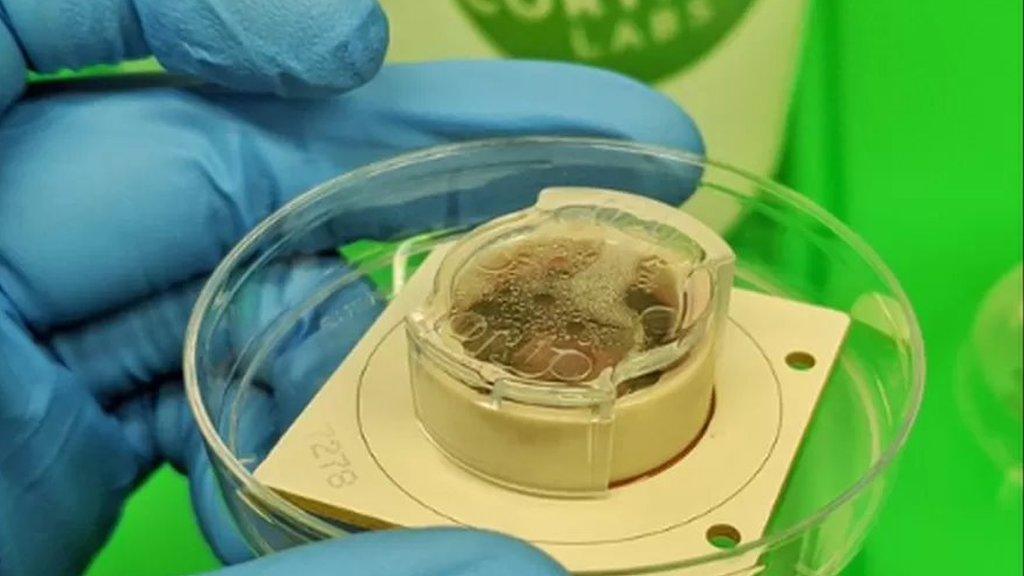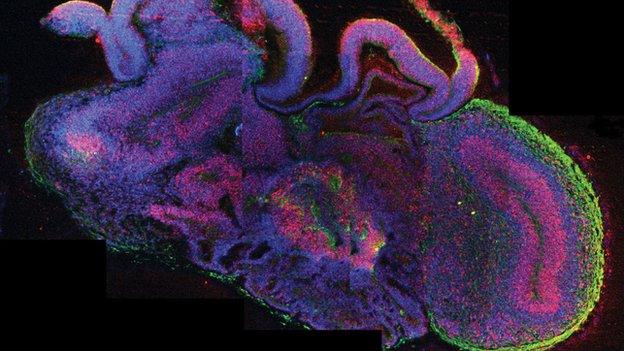Creepily clever: Lab-grown brain cells learn to play video game!
- Published
- comments

The 'mini-brain' has learned to play a 1970s video game
The human brain is a very powerful organ, but have you ever heard of one functioning outside of the human body?
It sounds like a pretty creepy concept, but scientists from the company Cortical Labs suggest they've done just that!
The researchers say they've managed to grow brain cells in a lab that have learned to play a video game from the 1970s called Pong.
Pong is a bit like a simple tennis game, where you move a bar on one side of the screen to bounce away a small square ball and prevent it from slipping past you.
The 'mini-brain', which is made up of 800,000 cells was grown in a dish using stem cells, as well as cells taken from mice embryos.
Mini-brains like this aren't a new thing. They were first produced in 2013, to study a condition called microcephaly, which is a genetic disorder where the brain is too small. These collections of brain cells have since been used for research into brain development.
However, Cortical Labs' research is the first time mini-brains like this have been plugged into, and interacted with, an outside environment, which in this case is a video game.
The mini-brain was connected to the game using electrodes which sent messages about where the ball and paddle was on on the screen.
In response, the cells produced electrical activity of their own, learning to play the game in just five minutes.

The aim of the computer game Pong is to move a bar on the left to prevent the small square slipping past
Although the mini-brain frequently missed the ball, its success rate was well above random chance.
The researchers say their mini-brain can sense and respond to its environment. However, as it has no consciousness, which is the ability humans have to recognise what's going on around them, the mini-brain isn't actually aware it's playing Pong in the way a human player would be, the researchers have stressed.
Other experts in the field have described the research as ''exciting'', but they say calling the brain cells sentient, which describes the ability someone or something to understand or feel things, and which researchers at Cortical Labs have said about their cells, is going too far.
"We could find no better term to describe the device,'' Dr Brett Kagan, who worked on the research said. ''It is able to take in information from an external source, process it and then respond to it in real time."

'Mini-brains' being grown in a lab isn't a new concept
Cardiff Psychology School honorary research associate Dr Dean Burnett believes the term ''thinking system'' is more appropriate.
''There is information being passed around and clearly used, causing changes, so the stimulus they are receiving is being 'thought about' in a basic way,'' he says.
So what's next for the mini-brain? Dr Kagan hopes the technology might eventually be used to test treatments for neurodegenerative diseases like Alzheimer's.
For now it will have to keep trying to beat its own high score.
- Published25 January 2022

- Published19 March 2023

- Published29 August 2013

